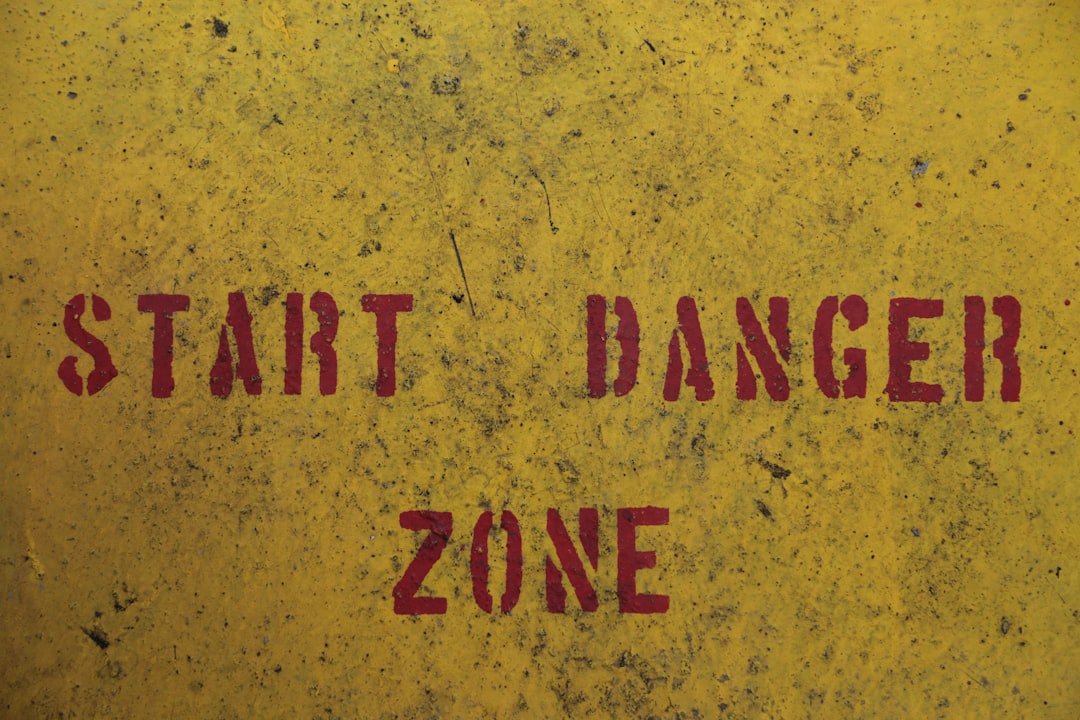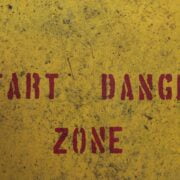
The Art of Cringe: Examining the Worst Business Scripts in History
In the world of business, the term “cringe” refers to a feeling of embarrassment or discomfort that arises from witnessing or experiencing something awkward or awkwardly executed. It is a concept that has gained significant attention in recent years, particularly in relation to business scripts. A business script is a written document that outlines the dialogue and actions for a business presentation, advertisement, or any other form of communication. The words and phrases used in these scripts can have a profound impact on how a brand is perceived by its audience.
Cringe matters in business scripts because it can make or break a brand. When a script is poorly written or executed, it can leave a lasting negative impression on the audience. This can result in decreased trust, credibility, and ultimately, a loss of customers. On the other hand, a well-crafted script can captivate and engage the audience, leaving them with a positive perception of the brand and a desire to learn more or make a purchase. Therefore, understanding and avoiding cringe-worthy moments in business scripts is crucial for any company looking to succeed in today’s competitive market.
Key Takeaways
- Understanding the concept of cringe in business scripts is crucial for creating effective marketing content.
- Bad business scripts can have a significant impact on a brand’s reputation and success.
- Examining past examples of cringe-worthy business scripts can provide valuable lessons for avoiding similar mistakes.
- Tips from professionals can help writers create engaging and authentic business scripts.
- The psychology of cringe and the impact of social media on business scripts should be considered when crafting marketing content.
The Power of Words: Why Bad Business Scripts Can Make or Break Your Brand
Words have power, and this is especially true when it comes to business scripts. A poorly written script can have disastrous consequences for a brand’s reputation and success. One example of a bad business script is one that is filled with clichés and jargon. These types of scripts can come across as insincere and unoriginal, causing the audience to lose interest and trust in the brand.
Another example of a bad business script is one that lacks clarity and coherence. If the message being conveyed is confusing or difficult to understand, it can leave the audience feeling frustrated and disconnected from the brand. Additionally, scripts that are overly promotional or sales-focused can be off-putting to the audience, as they may feel like they are being sold to rather than engaged with.
These examples of bad business scripts can damage a brand’s reputation by creating a negative perception in the minds of the audience. They can make the brand appear unprofessional, insincere, and out of touch with its customers. In today’s digital age, where information is readily available and opinions can spread quickly, a single cringe-worthy business script can have far-reaching consequences for a brand’s success.
Learning from the Past: Examining the Worst Business Scripts in History
Throughout history, there have been numerous examples of cringe-worthy business scripts that have become infamous for their awkwardness and poor execution. One such example is the 1986 McDonald’s commercial featuring NBA legend Larry Bird and fellow basketball star Michael Jordan. In the commercial, Bird and Jordan engage in a friendly competition to see who can make the most impressive basketball shots. While the concept of the commercial was promising, the execution fell flat due to stilted dialogue and awkward acting. The result was a cringe-worthy commercial that left viewers feeling uncomfortable and unimpressed.
Another infamous example of a cringe-worthy business script is the 2006 Microsoft Windows Vista launch event. During the event, Microsoft CEO Steve Ballmer delivered an energetic and passionate speech about the new operating system. However, his over-the-top enthusiasm and exaggerated gestures came across as forced and insincere, leaving many viewers feeling uncomfortable and skeptical of the product.
These examples of cringe-worthy business scripts serve as valuable lessons for brands today. They highlight the importance of authenticity, clear communication, and genuine connection with the audience. By learning from these past mistakes, brands can avoid making similar cringe-worthy errors in their own scripts.
The Dos and Don’ts of Writing a Business Script: Tips from the Pros
| Do’s | Don’ts |
|---|---|
| Start with a clear and concise message | Ramble on without a clear direction |
| Use active voice and strong verbs | Overuse passive voice and weak verbs |
| Include a call to action | Leave the audience without a clear next step |
| Use visuals to support your message | Overload the script with too many visuals |
| Practice and rehearse your delivery | Wing it and hope for the best |
Writing an effective business script requires careful consideration and attention to detail. To help guide you in the process, here are some dos and don’ts from the pros:
Dos:
1. Know your audience: Before writing a script, it is essential to understand who your target audience is. This will help you tailor your message and language to resonate with them.
2. Keep it concise: Business scripts should be clear, concise, and to the point. Avoid unnecessary jargon or complex language that may confuse or alienate your audience.
3. Use storytelling techniques: Incorporating storytelling techniques into your script can help captivate and engage your audience. Use anecdotes, examples, and narratives to make your message more relatable and memorable.
4. Practice, practice, practice: Once you have written your script, practice delivering it multiple times. This will help you become more comfortable with the content and ensure a smooth and confident delivery.
Don’ts:
1. Overuse clichés: Clichés can make a script sound generic and unoriginal. Avoid using overused phrases or expressions that may come across as insincere or trite.
2. Be overly promotional: While it is important to convey the benefits of your product or service, avoid being overly promotional in your script. Instead, focus on providing value and building a genuine connection with your audience.
3. Neglect the power of visuals: In addition to the words in your script, consider how visuals can enhance your message. Use images, videos, or graphics to support and reinforce your key points.
4. Forget to revise and edit: After writing your script, take the time to revise and edit it for clarity, coherence, and grammar mistakes. A well-written script will leave a lasting positive impression on your audience.
By following these dos and don’ts, you can increase the effectiveness of your business scripts and avoid cringe-worthy moments that may damage your brand’s reputation.
The Psychology of Cringe: Why We React Strongly to Awkward Business Scripts
The feeling of cringe is a powerful and universal human emotion. It is rooted in our innate sense of empathy and our ability to recognize social norms and expectations. When we witness or experience something awkward or embarrassing, our brains react by triggering a physical and emotional response. This response is often characterized by feelings of discomfort, second-hand embarrassment, and a desire to distance ourselves from the situation.
The science behind why cringe is so uncomfortable lies in the brain’s mirror neuron system. Mirror neurons are a type of brain cell that fire both when we perform an action and when we observe someone else performing the same action. They play a crucial role in our ability to empathize with others and understand their emotions. When we witness an awkward or embarrassing moment, our mirror neurons fire, causing us to experience a similar emotional response as if we were in that situation ourselves.
Cringe-worthy business scripts elicit such strong reactions because they violate social norms and expectations. They often involve awkward or forced interactions, insincere or exaggerated emotions, or inappropriate or offensive content. These violations of social norms trigger our mirror neurons, leading to feelings of discomfort and embarrassment.
The impact of cringe on our perception of brands is significant. When we witness a cringe-worthy business script, it can create a negative association with the brand in our minds. We may perceive the brand as unprofessional, out of touch, or lacking authenticity. This negative perception can be difficult for a brand to overcome and may result in decreased trust, credibility, and ultimately, a loss of customers.
The Impact of Social Media on Cringe-Worthy Business Scripts
In today’s digital age, social media has become a powerful amplifier of cringe-worthy moments. With platforms like Twitter, Facebook, and Instagram, it has never been easier for individuals to share their thoughts and opinions on the internet. This means that a cringe-worthy business script can quickly go viral, reaching a wide audience and potentially causing significant damage to a brand’s reputation.
One example of a business that faced backlash on social media due to a cringe-worthy script is Pepsi. In 2017, the company released a commercial featuring model Kendall Jenner participating in a protest. The commercial was widely criticized for trivializing social justice movements and using them as a marketing ploy. Social media users took to platforms like Twitter to express their outrage, resulting in widespread negative publicity for the brand.
The impact of social media on cringe-worthy business scripts highlights the importance of careful planning and consideration when creating content. Brands must be aware of the potential consequences of their scripts and take steps to ensure that they resonate positively with their target audience. This may involve conducting market research, seeking feedback from focus groups, or consulting with professionals in the field of marketing and communication.
The Importance of Authenticity: How to Avoid Writing a Cringe-Worthy Business Script
Authenticity is key when it comes to writing business scripts that resonate with your audience. In today’s world, consumers are increasingly drawn to brands that are genuine, transparent, and relatable. They want to connect with brands on a personal level and feel like they are being spoken to as individuals rather than just another customer.
To avoid writing a cringe-worthy business script, it is important to be authentic in your messaging. This means being true to your brand’s values, mission, and voice. Avoid using generic or clichéd language that may come across as insincere or inauthentic. Instead, focus on communicating your unique selling points and the value you can provide to your customers.
Another way to ensure authenticity in your business script is by incorporating real-life stories and examples. Sharing personal anecdotes or customer success stories can help humanize your brand and make it more relatable to your audience. This can create a sense of trust and credibility, which are essential for building strong and lasting relationships with your customers.
Additionally, it is important to listen to your audience and be responsive to their needs and feedback. This can be done through market research, surveys, or social media monitoring. By understanding what your audience wants and needs, you can tailor your script to address their concerns and provide solutions that resonate with them.
The Role of Humor in Business Scripts: When It Works and When It Doesn’t
Humor can be an effective tool in business scripts when used appropriately. It has the power to captivate and engage an audience, making them more receptive to your message. However, humor can also backfire if not executed properly, resulting in cringe-worthy moments that may damage your brand’s reputation.
When using humor in a business script, it is important to consider your audience and the context in which the script will be delivered. What may be funny to one person or group may not be funny to another. Therefore, it is crucial to conduct market research and understand the preferences and sensibilities of your target audience.
Another consideration when using humor in a business script is the type of humor being employed. Different types of humor appeal to different people, so it is important to choose a style that aligns with your brand’s values and voice. For example, slapstick humor may work well for a light-hearted and playful brand, while dry wit may be more appropriate for a sophisticated and intellectual brand.
It is also important to avoid using humor that may be offensive or inappropriate. Jokes that rely on stereotypes, offensive language, or controversial topics can alienate your audience and damage your brand’s reputation. Therefore, it is crucial to exercise caution and sensitivity when incorporating humor into your business script.
The Ethics of Cringe: Is It Ever Okay to Use Embarrassment as a Marketing Tactic?
The use of cringe as a marketing tactic raises ethical considerations that must be carefully evaluated. While cringe can be a powerful tool for capturing attention and generating buzz, it can also have negative consequences for a brand’s reputation and the well-being of individuals involved.
One ethical consideration is the potential harm that cringe-worthy moments can cause to individuals who are directly or indirectly affected by them. For example, if a business script involves embarrassing or humiliating someone, it can have long-lasting emotional and psychological effects on that person. It is important to consider the potential harm and ensure that all individuals involved in the creation and execution of the script are treated with respect and dignity.
Another ethical consideration is the potential for deception or manipulation. Cringe-worthy moments can sometimes be manufactured or staged in order to generate publicity or attention. This can be seen as dishonest and manipulative, as it may mislead the audience into believing that the moment is genuine when it is not. Brands must be transparent and honest in their marketing tactics, ensuring that their scripts accurately represent their values and offerings.
Ultimately, the ethics of using cringe as a marketing tactic depend on the intentions and impact of the script. If the script is designed to entertain and engage the audience in a respectful and responsible manner, it may be considered acceptable. However, if the script causes harm or misleads the audience, it crosses ethical boundaries and should be avoided.
Embracing the Art of Cringe and Learning from Our Mistakes
In conclusion, cringe is a concept that holds significant importance in business scripts. A poorly written or executed script can damage a brand’s reputation and result in a loss of customers. By understanding the power of words, learning from past mistakes, following best practices, considering the psychology of cringe, embracing authenticity, being mindful of humor, and evaluating ethical considerations, brands can avoid cringe-worthy moments and create scripts that resonate positively with their audience.
It is important to remember that mistakes are inevitable, and even the most well-intentioned scripts can sometimes fall flat. However, by embracing the art of cringe and learning from our mistakes, we can grow and improve as marketers and communicators. By continuously striving to create scripts that are engaging, authentic, and respectful, we can build strong and lasting relationships with our audience and ultimately, achieve success in the competitive world of business.
If you’re interested in learning more about the importance of a well-crafted business script, you might find this article from Wave Magnets insightful. They delve into the common mistakes that can make a business script ineffective and provide valuable tips on how to improve it. Check out their article on bad business scripts here.
FAQs
What is a bad business script?
A bad business script is a written document that outlines the plan for a business, but is poorly written, lacks clarity, and may contain errors or inconsistencies.
What are the consequences of a bad business script?
A bad business script can lead to confusion among employees, investors, and customers, which can ultimately harm the success of the business. It can also lead to missed opportunities and poor decision-making.
How can a bad business script be identified?
A bad business script can be identified by its lack of clarity, poor grammar and spelling, inconsistencies, and lack of detail. It may also contain unrealistic goals or strategies that are not feasible.
What are the common mistakes made in a bad business script?
Common mistakes made in a bad business script include lack of research, unrealistic financial projections, poor market analysis, and lack of a clear value proposition. It may also lack a clear understanding of the target audience and their needs.
How can a bad business script be improved?
A bad business script can be improved by conducting thorough research, seeking feedback from experts and potential customers, and revising the document to ensure clarity and consistency. It may also be helpful to seek the assistance of a professional writer or consultant.


















